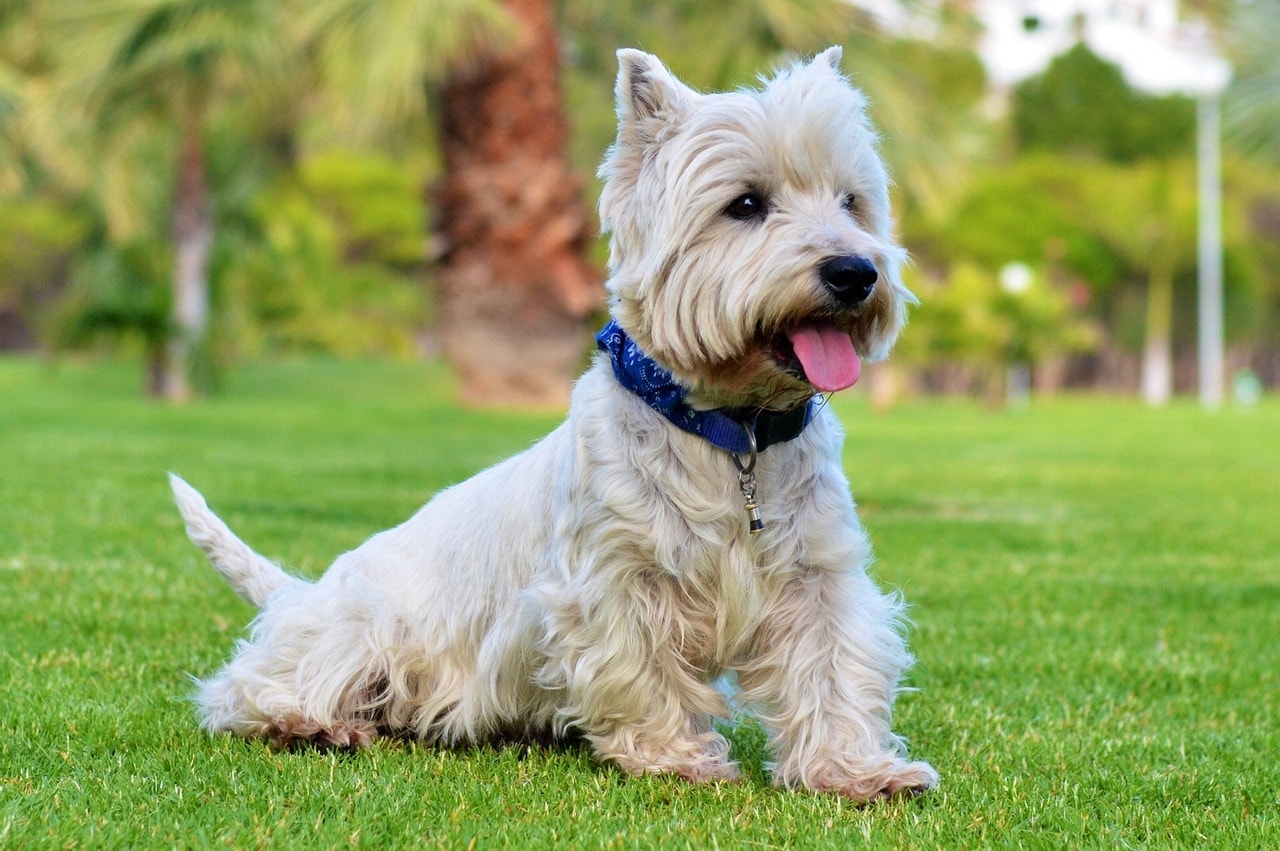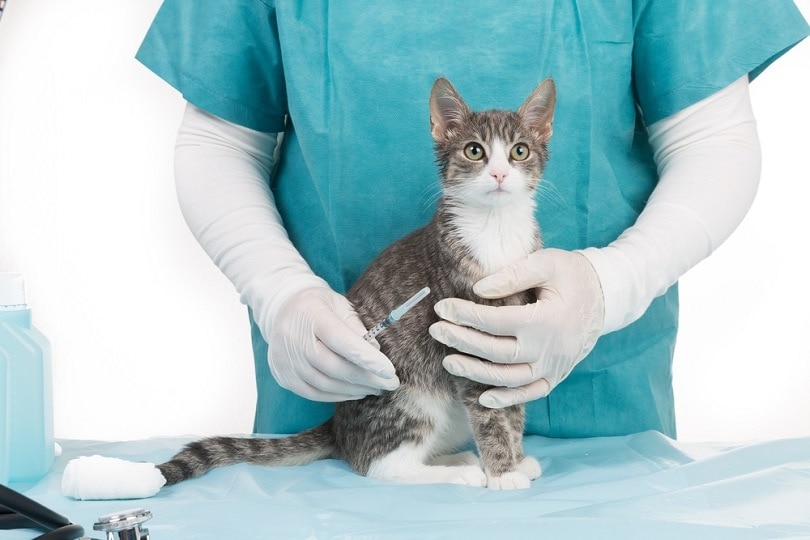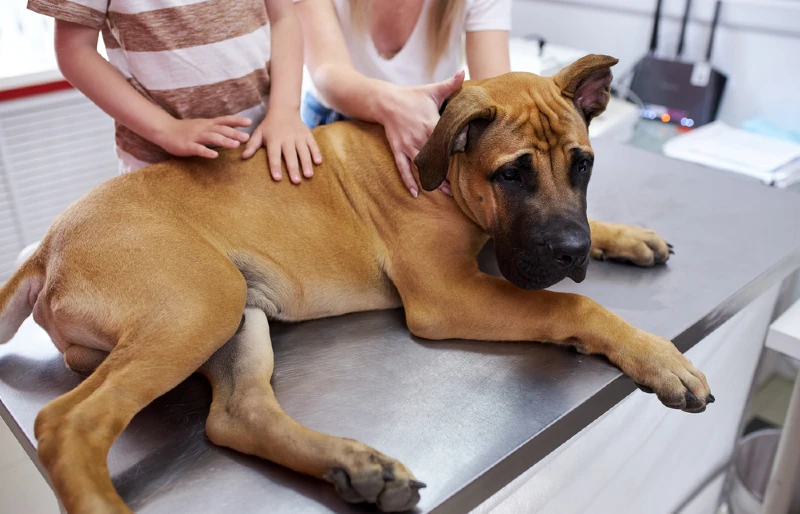Can Cats Eat Eggs? Our Vet Answers!
By Dr. Paola Cuevas, MVZ (Vet)
Updated on

More than most other domesticated animals, cats, as obligate carnivores, require the most animal protein. If Fluffy is looking a little too ‘fluffy,’ then you might need to increase the amount of protein in the diet. A portion of nutritious adult cat food should contain a minimum of 26% protein for their body maintenance. But this is the bare minimum, and a cat’s natural diet contains about 40-55% protein.1 If you’re looking to supplement your cat’s diet with a little extra protein beyond their normal food, there are several ways to do that. Giving your cat eggs can be one of those ways. The short answer is “Yes, cats can eat eggs.” But there are some definite caveats.
Is Cooked Egg Good for Cats?
The first caveat is that the egg has to be gently cooked. Raw and undercooked eggs are not as nutritious as gently cooked eggs, the whites contain a protein called avidin which can bind strongly to Vitamin B7 (also called Biotin). This can prevent the body, as well as a cat’s body, from absorbing Biotin. In humans, lack of Biotin is usually associated with those who suffer hair loss. It is similar in cats, where a lack of Biotin negatively impacts their coat health and causes dry skin and brittle claws. When eggs are cooked, avidin’s binding abilities are weakened. This means that Biotin can be absorbed by the body more easily.
The most nutritious way to cook eggs for your cat is to leave the yolk a little runny. To make this safe, we recommend purchasing in-shell pasteurized eggs to avoid bacterial contamination such as Salmonella or E-coli, which can lead to food poisoning. Yes, cats in the wild will indeed eat raw eggs. But their digestive systems are more accustomed to it. They can handle it better than our coddled and domesticated fur babies.

Can Cats Eat Scrambled Eggs?
If you are going to give your cats eggs, they need to be gently cooked. Scrambled eggs are a good way to give your cat eggs, especially if you want to mix it in with some kibble for her to eat.
If you cannot get in-shell pasteurized eggs, scrambled eggs are a good option. Other options are pieces of hard-boiled eggs. However, your cat will get the most nutrition from eating poached or soft-boiled eggs, as cooked whites and runny yolks provide the most digestible nutrients.
Is an Egg a Good Meal for a Cat?
Since cats need a balanced diet that is high in animal-derived proteins and healthy fats, eggs are a great dietary supplement. Eggs are high in protein and good fats, and they are also low in carbohydrates, making them a species-appropriate ingredient for a cat. However, please note that eggs by themselves do not provide a cat with all of the nutrients they need to thrive.
If your cat’s food is high quality and labeled as “complete and balanced,” adding some species-appropriate treats like eggs is a great way of enhancing your cat’s nutrition. So, no, an egg is not a meal replacement for a cat, only a treat or supplement.
What Is Bad for Cats to Eat?
Cats should only consume eggs in moderation because of their high caloric value. On average, a medium size egg contains 62 calories. The daily caloric intake of a cat is approximately 20-35 kcal per pound of body weight depending on their activity level. Consider their food’s caloric content and calculate how much egg you can safely supplement without causing your cat to become unhealthy and overweight.
You also need to see how your cat’s body responds. You might find it doesn’t quite agree with them. Just remember to introduce eggs gradually and moderately. A small piece of about a quarter of a boiled egg for starters should do. Keep a close eye on their behavior and litter box.
Are Eggshells Good for Cats?
It’s not safe for a cat to eat a plain cracked eggshell. It can be a choking hazard and hard to digest. However, eggshells are packed with calcium. You can serve them to your cat crushed and mixed in with their food as a dietary supplement. Check out this simple way to make eggshell powder. You can boil the eggshells to clean them, dry them out in the oven, and grind them up into a fine powder in your food processor. You can also put it in a shake for yourself!
Conclusion
Giving your cat some eggs can be a great way to make sure they are feeling strong, and energized, and that they can even have a shinier coat. However, this is by no means a meal replacement. Keep in mind that they may not like it, or they may even be allergic to them. Whenever you are going to change your cat’s diet, always introduce things slowly to see their response. You might find that eggs actually become a little treat for your feline friend, something you can give as a reward!
See Also:
- Can Cats Eat Corn? What You Need To Know!
- Can Cats Drink Milk? What You Need to Know!
- Can Cats Eat Bread? What You Need to Know!
Featured Image Credit: Tamanna Rumee, Pixabay













